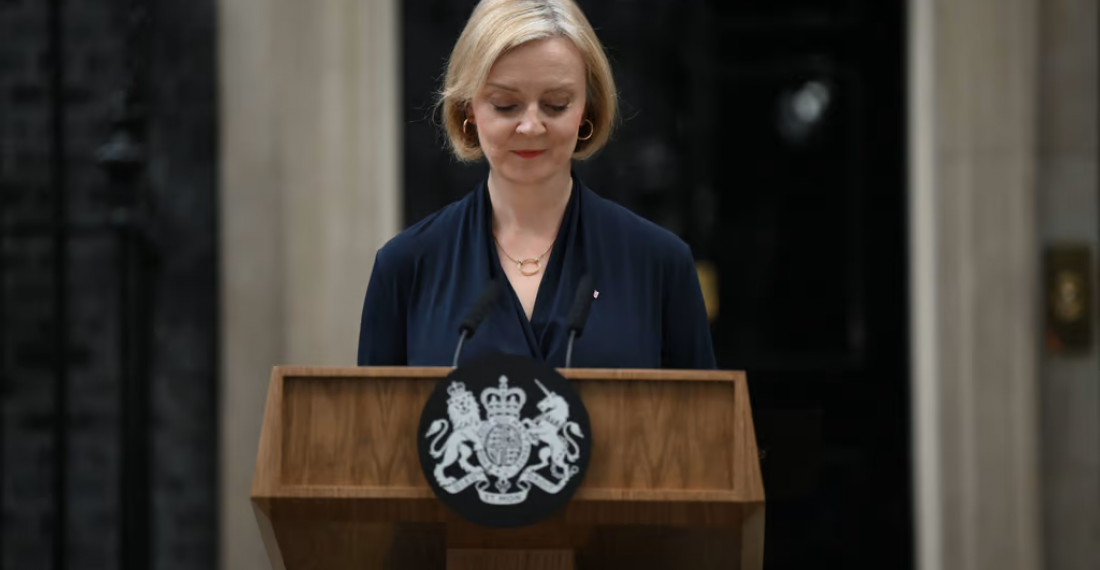Liz Truss has resigned as UK prime minister and leader of the Conservative Party in a statement outside Downing Street on Thursday afternoon (20 October)
She said she could not deliver the mandate on which she was elected as Tory leader and had notified the King that she was resigning
A Conservative leadership election will be completed within the next week, she said
"I will remain as prime minister until a successor has been chosen," she said
Her departure after 45 days in office makes her the shortest-serving PM in UK history
Truss's premiership has been in turmoil since her mini-budget last month, which rocked markets and was later scrapped by her new chancellor
The resignation of her home secretary on Wednesday and a chaotic vote in the Commons sealed her fate.
The appointment of Truss as a prime minister, after a long selection process within the Conservative Party was the last act of Queen Elizabeth II before her death.







